
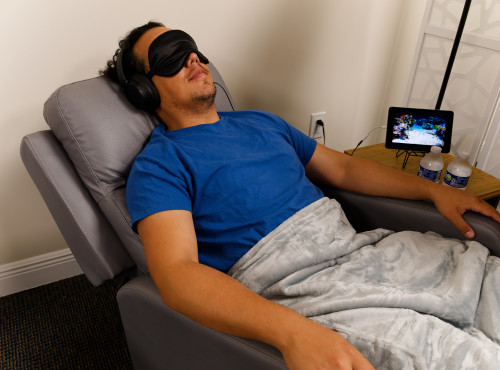
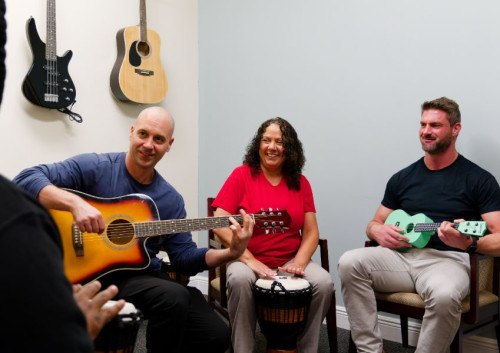
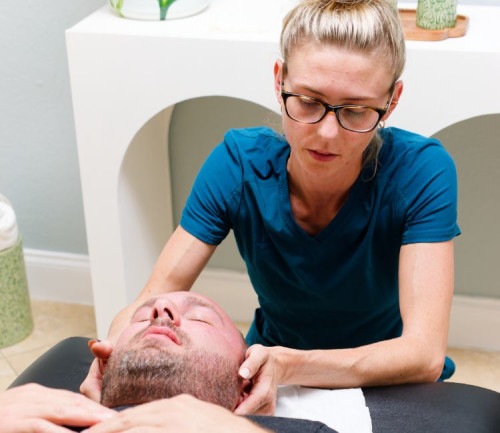
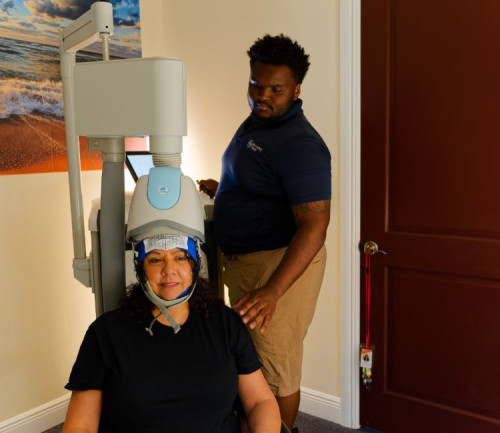




The Recovery Team - Newton
Verified Center
This provider's information has been quality-checked by Recovery.com's Research Team for accuracy and completeness, including center verification through appropriate third-party organizations.
Treatment Focus
This center treats substance use disorders and mental health conditions. You'll receive individualized care catered to your unique situation and diagnosis, learn practical skills for recovery, and make new connections in a restorative environment.
Primary Level of Care
Outpatient treatment offers flexible therapeutic and medical care without the need to stay overnight in a hospital or inpatient facility. Some centers offer intensive outpatient program (IOP), which falls between inpatient care and traditional outpatient service.
Treatment Focus
This center treats substance use disorders and mental health conditions. You'll receive individualized care catered to your unique situation and diagnosis, learn practical skills for recovery, and make new connections in a restorative environment.
Primary Level of Care
Outpatient treatment offers flexible therapeutic and medical care without the need to stay overnight in a hospital or inpatient facility. Some centers offer intensive outpatient program (IOP), which falls between inpatient care and traditional outpatient service.
Provider's Policy
Most insurance accepted.
The Recovery Team - Newton
The Recovery Team - Newton
About The Recovery Team - Newton
The Recovery Team - Newton offers compassionate, personalized care for individuals struggling with addiction and co-occurring mental health disorders. Located in Newton, Massachusetts, they provide partial hospitalization (PHP) and intensive outpatient programs (IOP) tailored to meet the unique needs of each client. With a focus on evidence-based therapies and holistic approaches, they include flexible scheduling and dual-diagnosis treatment to address both mental health and substance use disorders. The warm, welcoming environment and experienced team help clients begin their journey to lasting recovery.
Benefit from Evidence-Based Therapies
The Recovery Team - Newton takes a holistic and individualized approach to treatment, addressing the physical, mental, and emotional aspects of addiction. Their evidence-based therapies include cognitive behavioral therapy (CBT), dialectical behavior therapy (DBT), and relapse prevention education, giving clients proven methods for recovery. Holistic options, such as trauma-informed care and family support programs, complement these therapies by fostering emotional healing and strengthening relationships. The dedicated staff of addiction specialists and licensed mental health professionals bring extensive expertise and compassion, creating a safe space for clients to heal and grow.
Enjoy Flexible Scheduling
At The Recovery Team - Newton, unique offerings like dual-diagnosis treatment set them apart. They specialize in addressing co-occurring mental health disorders alongside addiction, providing comprehensive care that treats the whole person. Flexible scheduling in their PHP and IOP programs allows clients to balance treatment with work or school responsibilities. Additionally, their emphasis on family involvement allows loved ones to be a part of the healing process. This well-rounded approach empowers individuals to build a strong foundation for long-term recovery.
Access Empowering Resources
The Recovery Team - Newton understands that recovery doesn’t end when treatment does. Their aftercare services are designed to help clients maintain long-term sobriety with relapse prevention planning, alumni support groups, individual counseling, and referrals to community resources. By providing the tools for ongoing success and fostering a supportive network, they ensure that recovery becomes a sustainable and lifelong journey.
Experience a Welcoming Atmosphere
The Recovery Team - Newton creates a welcoming, comfortable space where healing feels natural. The facility is thoughtfully designed to encourage personal growth, offering cozy interiors and outdoor areas perfect for reflection or recreation. Clients enjoy nutritious, freshly prepared meals that support their physical wellness, complementing the emotional and mental care they receive. While focused on outpatient programs, the center’s warm and supportive atmosphere helps clients feel at home as they take each step on their recovery journey.

Highlights from the Center
Highlights
These highlights are provided by and paid for by the center.
Holistic Approach
Licensed for Both Addiction & Mental Health
Trauma-Informed Care
Master's Level Therapists
Center Overview
Treatment Focus
This center treats substance use disorders and mental health conditions. You'll receive individualized care catered to your unique situation and diagnosis, learn practical skills for recovery, and make new connections in a restorative environment.
Joint Commission Accredited
The Joint Commission accreditation is a voluntary, objective process that evaluates and accredits healthcare organizations (like treatment centers) based on performance standards designed to improve quality and safety for patients. To be accredited means the treatment center has been found to meet the Commission's standards for quality and safety in patient care.

The Recovery Team - Newton
Insurance Accepted
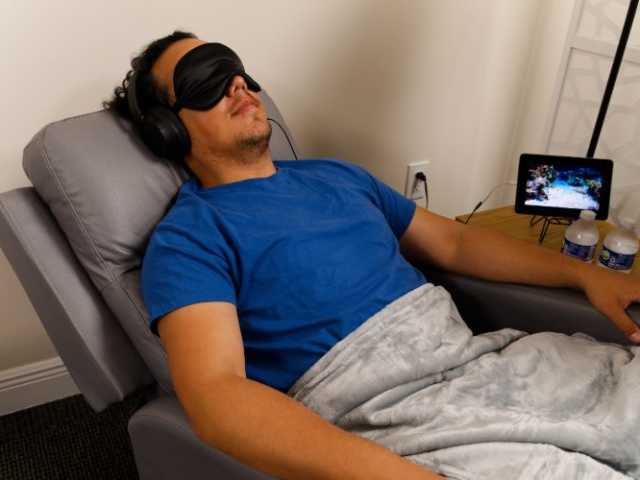
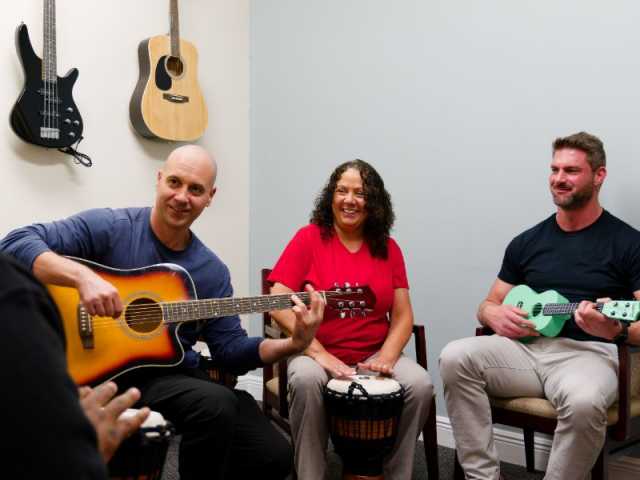
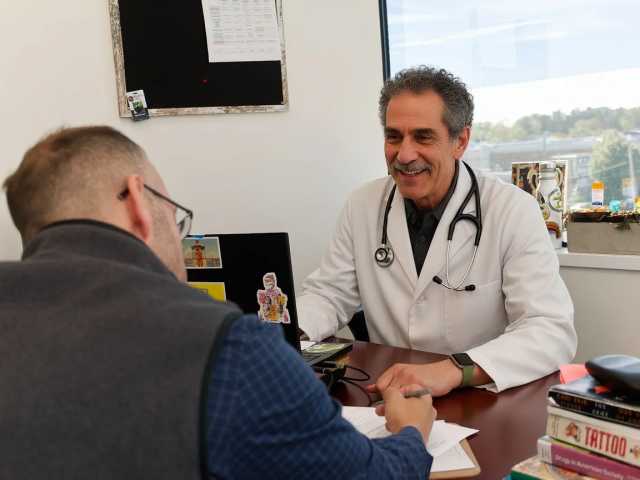

Recovery.com Verified Listing
Recovery.com verified that the name, location, contact information and license to operate for this treatment provider are valid and up-to-date.

Joint Commission Accredited

Licensed by Massachusetts
Recovery.com is an independent, third-party mental health resource. Verification does not imply endorsement and does not guarantee the quality of treatment services.
Meet Your Care Team

Michael Hurley
Executive Director

Jessie Beaton
Clinical Director
LMHC
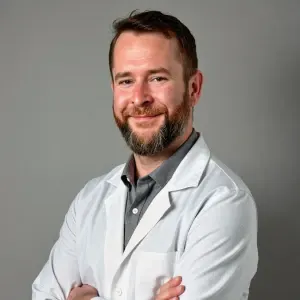
Casey Burke
Program Director
LADC-II, CADC, BBA

Pamela Sullivan
Clinician
LADC

Michael Leggiero
Co-Founder
Your Care Options
Specializations
Alcohol
Using alcohol as a coping mechanism, or drinking excessively throughout the week, signals an alcohol use disorder.
Anxiety
Anxiety is a common mental health condition that can include excessive worry, panic attacks, physical tension, and increased blood pressure.
Co-Occurring Disorders
A person with multiple mental health diagnoses, such as addiction and depression, has co-occurring disorders also called dual diagnosis.
Drug Addiction
Drug addiction is the excessive and repetitive use of substances, despite harmful consequences to a person's life, health, and relationships.
Family Therapy
Family therapy addresses group dynamics within a family system, with a focus on improving communication and interrupting unhealthy relationship patterns.
Family Involvement
Providers involve family in the treatment of their loved one through family therapy, visits, or both–because addiction is a family disease.
Medication-Assisted Treatment
Combined with behavioral therapy, prescribed medications can enhance treatment by relieving withdrawal symptoms and focus patients on their recovery.
Who We Treat
Men and Women
Men and women attend treatment for addiction in a co-ed setting, going to therapy groups together to share experiences, struggles, and successes.
Treatment Services
Day Treatment
In a PHP, patients live at home but follow an intensive schedule of treatment. Most programs require you to be on-site for about 40 hours per week.
Intensive Outpatient Program
In an IOP, patients live at home or a sober living, but attend treatment typically 9-15 hours a week. Most programs include talk therapy, support groups, and other methods.
Outpatient
During outpatient rehab, patients attend a structured treatment program while continuing to live at home.
Approaches
Evidence-Based
A combination of scientifically rooted therapies and treatments make up evidence-based care, defined by their measured and proven results.
Individual Treatment
Individual care meets the needs of each patient, using personalized treatment to provide them the most relevant care and greatest chance of success.
Twelve Step
Incorporating spirituality, community, and responsibility, 12-Step philosophies prioritize the guidance of a Higher Power and a continuation of 12-Step practices.
Therapies
1-on-1 Counseling
Patient and therapist meet 1-on-1 to work through difficult emotions and behavioral challenges in a personal, private setting.
Meditation & Mindfulness
A practiced state of mind that brings patients to the present. It allows them to become fully aware of themselves, their feelings, and the present moment.
Trauma-Specific Therapy
This form of talk therapy addresses any childhood trauma at the root of a patient's current diagnosis.
Art Therapy
Visual art invites patients to examine the emotions within their work, focusing on the process of creativity and its gentle therapeutic power.
Experiential Therapy
With this approach, patients heal by doing. Therapists help patients process difficult emotions to speak, using guided activities like art or dance.
Family Therapy
Family therapy addresses group dynamics within a family system, with a focus on improving communication and interrupting unhealthy relationship patterns.
Medication-Assisted Treatment
Combined with behavioral therapy, prescribed medications can enhance treatment by relieving withdrawal symptoms and focus patients on their recovery.
Conditions We Treat
Anxiety
Anxiety is a common mental health condition that can include excessive worry, panic attacks, physical tension, and increased blood pressure.
Depression
Symptoms of depression may include fatigue, a sense of numbness, and loss of interest in activities. This condition can range from mild to severe.
Trauma
Some traumatic events are so disturbing that they cause long-term mental health problems. Those ongoing issues can also be referred to as "trauma."
Substances We Treat
Alcohol
Using alcohol as a coping mechanism, or drinking excessively throughout the week, signals an alcohol use disorder.
Benzodiazepines
Benzodiazepines are prescribed to treat anxiety and sleep issues. They are highly habit forming, and their abuse can cause mood changes and poor judgement.
Co-Occurring Disorders
A person with multiple mental health diagnoses, such as addiction and depression, has co-occurring disorders also called dual diagnosis.
Cocaine
Cocaine is a stimulant with euphoric effects. Agitation, muscle ticks, psychosis, and heart issues are common symptoms of cocaine abuse.
Drug Addiction
Drug addiction is the excessive and repetitive use of substances, despite harmful consequences to a person's life, health, and relationships.
Ecstasy
Ecstasy is a stimulant that causes intense euphoria and heightened awareness. Abuse of this drug can trigger depression, insomnia, and memory problems.
Heroin
Heroin is a highly addictive and illegal opioid. It can cause insomnia, collapsed veins, heart issues, and additional mental health issues.
Psychedelics
Hallucinogenic drugs—like LSD—cause euphoria and increased sensory experiences. When abused, they can lead to depression and psychosis.
Languages
Care Designed for Your Needs
Personal Amenities
Activities
Yoga
Yoga is both a physical and spiritual practice. It includes a flow of movement, breathing techniques, and meditation.

Learn More About the Center
Risks Associated with Barbiturates
Learn about the serious risks associated with barbiturate use, ranging from dependence to overdose.
Learn about Sedatives
Uncover the different types of sedatives, their medical uses, and their potential impacts.
Effects of Amphetamines
Delve into the science behind amphetamines, exploring how they affect your brain’s neurotransmitters.
Help for Alcohol Addiction
Take the first step toward gaining control over life and breaking free from addiction.
What people are saying
Treatment
5.0
Accommodations
5.0
Food & Nutrition
5.0
Value
5.0
John
Reviewed 04/16/25
Review from Rehabs.com
Aaron
Reviewed 03/17/25
Review from Rehabs.com
Ryan
Reviewed 04/29/25
Review from Rehabs.com
Kenneth
Reviewed 02/21/25
Review from Rehabs.com
Brad
Reviewed 04/30/25
Review from Rehabs.com





